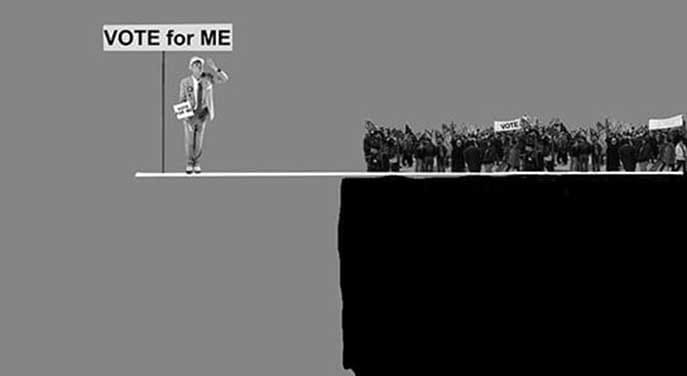 The federal Liberal proposal for electoral reform in Canada has its merits. The government’s plan to force improvements to our democracy, however, is blatantly undemocratic.
The federal Liberal proposal for electoral reform in Canada has its merits. The government’s plan to force improvements to our democracy, however, is blatantly undemocratic.
Let’s examine why.
One of Prime Minister Justin Trudeau’s key strategies was that the 2015 federal election would be the last “held under the first-past-the-post voting system.” While it wasn’t a campaign promise equivalent to the parting of the political Red Sea, it held water with voters – including me, one of a few Canadian conservatives who has long supported electoral reform.
First-past-the-post (FPTP) voting is used in various countries, including the U.S., United Kingdom and Canada. It’s a winner-take-all system with a formula that’s easy to understand. If a political candidate finishes first in a riding, be it by one vote or (say) one million votes, he/she wins the seat. The political party with the most seats will form government.
Unfortunately, FPTP is flawed in one important sense: popular support is meaningless.
Most of Canada’s federal governments have been formed with the winning party earning less than half of overall popular support. The only exceptions have been Sir Wilfrid Laurier (1900, 1904), Sir Robert Borden (1917), William Lyon Mackenzie King (1940), John Diefenbaker (1958) and Brian Mulroney (1984).
Here is the proverbial icing on the FPTP cake.
In the 2011 federal election, Stephen Harper and the Tories won a majority government (166 out of 308 seats) and earned 39.62 percent of popular support. In the 2015 federal election, Trudeau and the Liberals won a majority government (184 out of 338 seats) and earned 39.47 percent of popular support.
Yes, you read that correctly. The Trudeau Liberals won 18 more seats than the Harper Tories – in a larger Parliament – with a slightly lower percentage of popular support.
Does that make one government more legitimate than the other? No, since they both won their respective elections fair and square. What it does mean is this Liberal government, much like the preceding Tory government, was not supported by more than 60 percent of all eligible voters.
This fact doesn’t, and shouldn’t, have any effect on the government’s day-to-day operations. Yet any proposal that could dramatically change a long-standing component of our political process must be, in theory, supported by a majority of Canadians.
Switching from the historic FPTP model to a new proportional representation model surely fits into this latter category.
Ah, but the Liberals don’t agree. In late December, Liberal House Leader Dominic LeBlanc made this statement on CTV’s Question Period: “Our plan is not to have a national referendum. Our plan is to use Parliament to consult Canadians. That has always been our plan and I don’t have any reason to think that’s been changed.”
The plan, in case you’re wondering, is reportedly to consult an all-party committee about various electoral reform strategies, including ranked ballots, mixed-member proportional representation and single transferable vote. Our system would then be reformed in about 18 months.
Canadians wouldn’t have direct input into the Liberals’ electoral reform plan. Your 39.47 percent federal government will tell us how we’ll all vote in 2019. If you don’t like it, lump it.
This is an unbelievably foolish strategy. You can’t strongly support a democratic principle, and then implement it in the most undemocratic fashion imaginable. By doing so, this important exercise in improving Canada’s flawed electoral system has already been defeated at the starting gate.
As Canadian Taxpayers Federation federal director Aaron Wudrick nicely put it in the National Post on Dec. 30, “The Trudeau government has a mandate to explore electoral reform. It does not have a mandate to impose anything it draws up without asking Canadians first.”
Here’s my advice to the Liberals. Hold a referendum on electoral reform, and let the Canadian people decide. It’s the democratic thing to do.
Troy Media columnist and political commentator Michael Taube was a speechwriter for former prime minister Stephen Harper.
The views, opinions and positions expressed by columnists and contributors are the author’s alone. They do not inherently or expressly reflect the views, opinions and/or positions of our publication.


